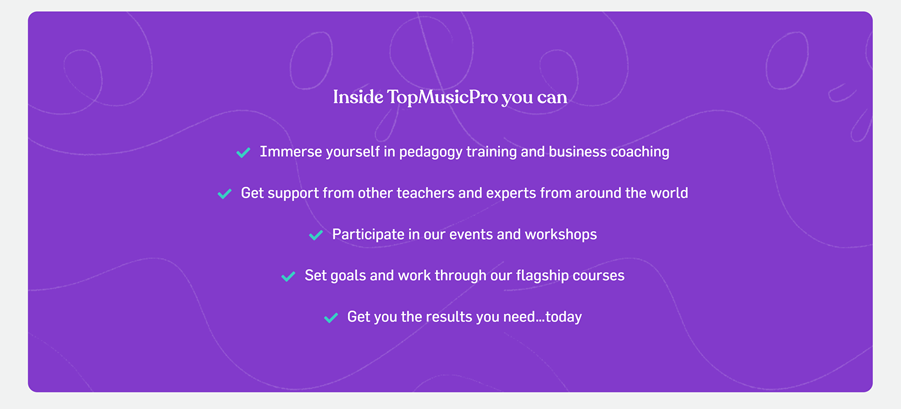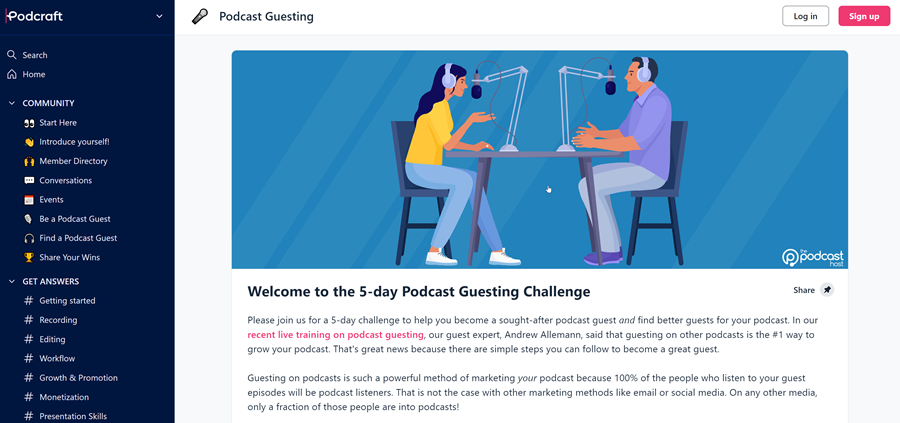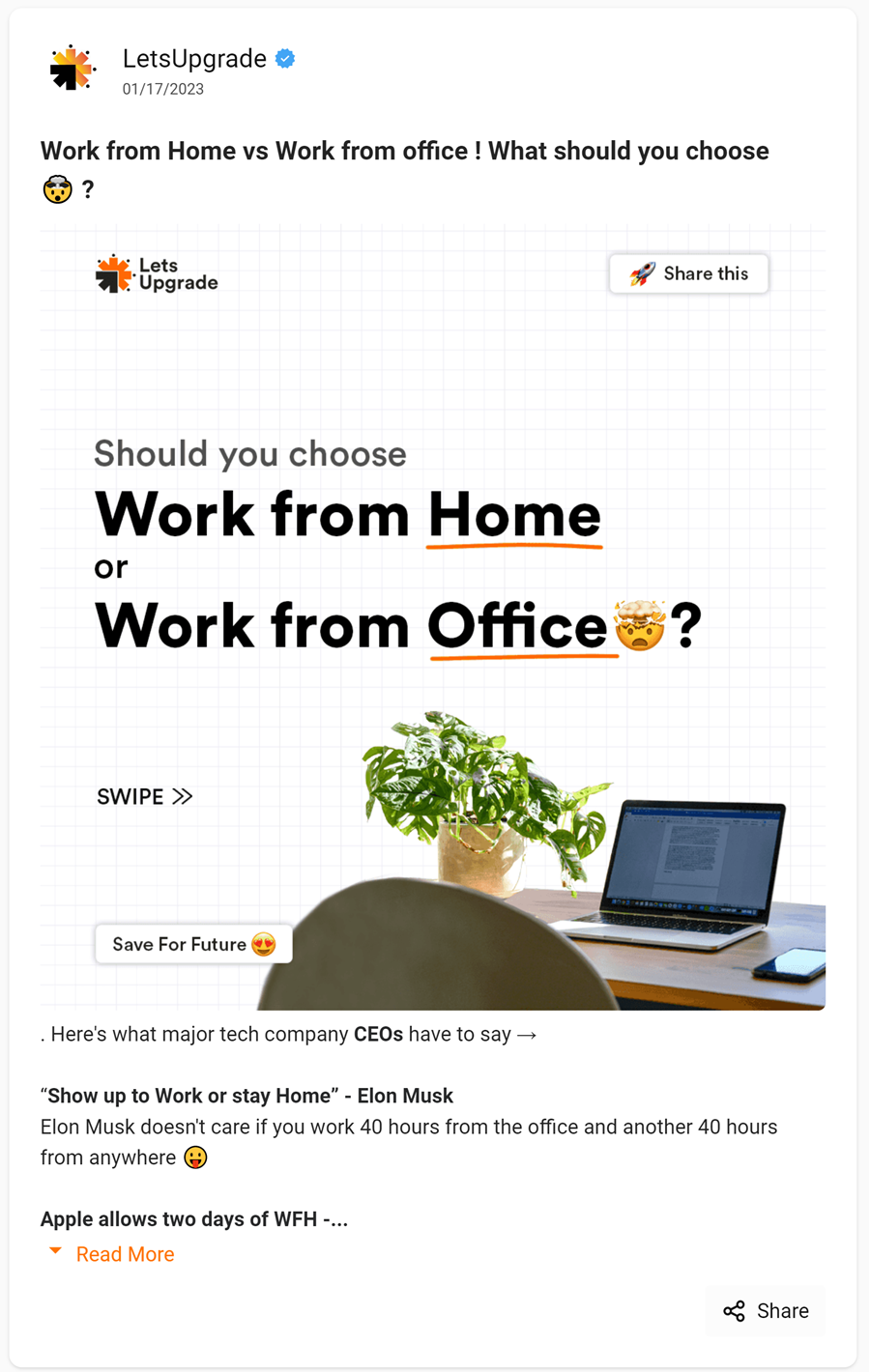We earn a commission from partner links on this site. This doesn’t affect our opinions or evaluations.
Individuals enter digital forums anticipating educational growth in a secure atmosphere where they feel acknowledged, understood, and truly embraced.
They gain from belonging to a cooperative setting where individuals collaborate to achieve a mutual aim. The positive impacts are indeed quite numerous:
Though these multiple benefits (plus others) are truly excellent, developing an education-centered fellowship presents real difficulties. Therefore, we’ve assembled seven key tips for creating a successful online learning hub.
A digital learning fellowship is a virtual environment where your learners can discover solutions to their inquiries, connect for shared responsibility, or access helpful instruments and materials. Many innovative educators establish such online groups using LinkedIn, Facebook, messaging services, or a bespoke community portal.
Online fellowships let you offer much more than just delivering course material. You can cultivate a space where participants might pose inquiries, showcase their accomplishments, receive valuable critiques, and encourage fellow members.
Digital fellowships assist participants through six distinct avenues. Nevertheless, it’s not a requirement for every one of these components to be included within each fellowship. Instead, carefully choose those that are most pertinent to your specific subject matter and your learners’ needs.

Carefully evaluate which components offer the support your students need most effectively. Typically, it is advisable not to develop more than is genuinely required. Doing so introduces the drawback of generating unnecessary work and poses the danger of overwhelming your audience with too much information.

Prior to starting, it is essential to establish a distinct objective and a clear reason for your online fellowship. Ensure you can confidently address these inquiries before proceeding:
Additionally, it’s vital to consider if this fellowship supports a solitary course or your complete online educational program. The community’s primary emphasis and its overall identity will largely be shaped by this choice.
Establishing a group on platforms such as Facebook or LinkedIn is straightforward and might seem like a practical initial approach. However, this choice restricts your capabilities in three noteworthy respects:
A more sustainable, forward-looking strategy involves selecting a platform specifically engineered for digital learning fellowships. While our primary suggestions include Mighty Networks and Circle, you can explore our detailed evaluation of the premier online community platforms to discover the one most suitable for your needs.
Ness Labs serves as an illustration of an educational fellowship that utilizes a dedicated, exclusive platform. This particular community operates on Circle, a system that manages all crucial facets of interaction, such as initiating conversations, structuring materials, supervising members, and a great deal more.

Recognizing that every fellowship possesses a unique ambiance, it is crucial within a digital education fellowship to cultivate an atmosphere strongly oriented towards learning. If not, a possibility exists that learners might attend primarily for social interaction.
Although social interaction is certainly welcome, ensure it doesn’t vie with the fellowship’s principal aim—education.
A highly effective method for emphasizing education involves solidifying your role as the instructor and the guide for the educational journey. Your active participation directly stimulates educational engagement. You have the opportunity to critique their contributions, provide constructive critiques, and address pertinent inquiries.
When learners pose questions, the impulse to immediately showcase your expertise can be strong. However, it is generally more constructive to refrain from addressing every single inquiry. Consider two common instances where holding back your answer is the superior method to promote educational growth.

Keeping your fellowship active is vital since education requires focus. It’s beneficial to offer materials in two main categories: enduring and temporary.
Enduring materials encompass lasting instruments and aids that facilitate education, such as practical templates, concise learning modules, and key reference points. You will need to arrange these items so learners can readily locate them.
Think about structuring your instruments and aids to be easily discoverable, not merely searchable. If learners encounter difficulties locating them, their utilization will diminish.
Temporary materials are fresh and effectively seize concentration. Such items reinforce crucial concepts, echo guiding statements, and steer focus back towards their main objectives. These frequently offer encouragement and can shift perspectives.
Temporary materials might consist of relatable images, simple-to-address inquiries or surveys, or uplifting reflections.

Individuals acquire knowledge more effectively when they are genuinely participating. Their learning is optimized when they articulate their processes, offer constructive criticism to colleagues, or assist another person in grasping a particular idea.
This represents a key motive for choosing a fellowship platform that simplifies member interaction. Numerous platforms highlight these contributions through engaging elements and digital awards.
Each time you share content, be open to utilizing mentions, posing questions that encourage deeper reflection, and directing inquiries towards other participants.
Whenever you observe someone posing an insightful question or offering a valuable remark on another’s contribution, provide detailed commendation regarding their specific inquiry or statement. For additional concepts to stimulate your fellowship, explore these notions and tactics for fellowship involvement.

A significant hurdle in the educational journey involves engaging in a repetitive process of trial and error. This phase is characterized by individuals endeavoring to implement their acquired knowledge, thereby confronting the possibility of not succeeding. The context is irrelevant, whether one is attempting a novel martial arts technique or dispatching their initial mass electronic communication. Apprehension regarding potential setbacks frequently prevents numerous individuals from achieving their desired outcomes.
Given that setbacks can induce a state of inaction, it becomes paramount to observe continuous development and consistently offer constructive guidance. Advancement—which includes the advancement made through attempts and subsequent non-successes—constitutes a typical and standard part of the educational process. Indeed, learners frequently gain more profound insights from their errors and unsuccessful attempts than from their achievements.
Upon establishing a digital educational fellowship, it proves advantageous to frame non-success as an integral component of advancement. Provided you deliver guidance and transform every instance of non-success into an educational opportunity, your participants will remain correctly oriented. You persistently motivate learners to maintain their forward momentum, notwithstanding the inherent uncertainties involved.
Acknowledging triumphs allows your learners to truly appreciate their achievements. The favorable outcomes and advancements of your learners strengthen their motivation to persist in their studies and successfully reach their goals. Moreover, from an instructional standpoint, witnessing their victories is genuinely rewarding.
This practice offers numerous advantages for both yourself and your fellowship:
When you reflect on how the accomplishments of your present learners can encourage both current and prospective participants to strive for similar outcomes, it can create a widespread, beneficial influence.
Certain fellowship platforms offer excellent methods for bestowing commendations and acknowledgments. Such acknowledgment might manifest as an official certificate, a digital emblem, financial or physical rewards, or simply the honor of public praise. Furthermore, implementing these recognition strategies does not necessarily entail significant expenditure.
Numerous studies indicate that supervisors achieve greater success in inspiring employees to exceed expectations through acknowledgment rather than solely through financial incentives. If this principle holds true for an employee in a professional setting, imagine the powerful effect that compelling acknowledgment could have on your own audience?

Developing a digital educational fellowship can substantially influence your learners’ achievements.
Because it is more encompassing than a mere course, it provides an entire environment conducive to learner accomplishment. Given that education frequently involves trial-and-error, the fellowship can function as a supportive experimental space where individuals motivate peers and are similarly uplifted.
It also presents a superb opportunity for you to exert a more profound influence on your learners and their ultimate outcomes.
Therefore, how do you envision the appearance and function of your digital educational fellowship?
Please offer your thoughts and inquiries in the section provided beneath.
Platforms can range from messaging apps to social media groups to online community platforms. While our top recommendations are Mighty Networks and Circle, you can see our comparison of the best online community platforms.
Some online community platforms are more secure than others. Communities may also benefit from a strictly enforced code of conduct. If you’re looking for an example of a complete code of conduct, check out the one posted by the Love Club, a public club for women’s health.
Additionally, as a leader, you can foster a feeling of safety by appropriately sharing vulnerable stories, which signals safety to others.

Zara Moreen contributes her talents as a content writer at sellingonlinecoursesguide.com, where she creates engaging and informative content that guides course creators through the intricacies of online education. Her writing helps demystify the process of creating and selling online courses while providing practical value to the platform's readers.

Zara Moreen contributes her talents as a content writer at sellingonlinecoursesguide.com, where she creates engaging and informative content that guides course creators through the intricacies of online education. Her writing helps demystify the process of creating and selling online courses while providing practical value to the platform’s readers.

We respect your privacy and will never spam you.